
About this Event
1-day CPD Training - Moral Injury
Moral Injury differs from other traumas, in that it is a "wound to the soul". It is a violation of our morals, or code of ethics. Anyone can experience moral injury, and it usually happens through one of three ways:
- You are forced to do something that goes against your ethical code (Acts of commission)
- You are forced to NOT do something, which goes against your ethical code (Acts of omision)
- Betrayal by someone in power
Some examples are:
- Nurses who didn't get the proper protective gear during COVID-19
- Military staff who had to end a life in the line of duty
- A firefighter who was unable to save a life
- Consequences of whistle-blowing
- A social worker who had to close a case, despite the young person being at risk
- A young person who spoke up to a professional to protect her younger sibling from harm
- And so forth...!
All of these examples show that a person's ethical code, their morals, were violated or betrayed in some way. And this can have a lot of impact on a person, including much shame ("I cant' talk about it), guilt ("Why did I do that?"), self-blame ("I made the wrong decision"), and self-condemning ("I am a terrible person").
Moral injury differs from trauma, in that it is less about 'processing trauma'. Research has shown that methods like Trauma-Focused Cognitive Behavioural Therapy (TF-CBT) are less useful. The core of a moral injury is more about the meaning that we derive from the incident, and how it changes our life ever since. This can bring up the big existential question: Why am I here? Who am I now?
In this integrative and experiential training we will explore the meaning of moral injury, how it might show up in the therapy/counselling room, and how you as a professional can work with this in a sensitive client-friendly way. We will have an opportunity to practice with some of the material we covered with a real-life "client" (an actress, who is also a PhD qualified mental health professional). We will do this safely as a group, in a way where we welcome mistakes and experiential learning! After all, training is less about 'instantly getting it right', but rather about figuring out what may work well and not so well.
Who is this training for:
The training is suitable for both student and qualified counsellors, psychotherapists, social workers, psychologists, support workers, GP's, psychiatrists, hypnotherapists, as well as any other mental health professional who works with trauma or wants to work with traumatised clients. It is taught face-to-face in Southend-on-Sea.
About the Trainer - Maaike Beech
Maaike is a MBACP and NCPS Senior Accredited counsellor and psychotherapist with a specialty as a Trauma Clinician. She has been working with trauma for over 16 years’ and has trained in TF-CBT, Rewind-Technique, EMDR Level 1, 2 and 3, Sensorimotor Psychotherapy Level 1 and is currently training in IFS. Maaike works as a Clinical Lead for the Children's Society for all counsellors, psychotherapists, and clinical supervisors. She is also the Director of The Beech Practice Ltd. She is a qualified clinical supervisor and runs a Diploma in Trauma-Informed Clinical Supervision, as well as a NCPS Quality Checked Foundation Diploma called “Therapeutic Safety in Trauma”.
Maaike originally trained as a counsellor in the Netherlands, whilst working for Victim Support and General Counselling Departments, with a specialty in domestic abuse. Maaike has also worked for a Hospice, Rape Crisis and the Children’s Society, who work with refugees, migrants, trafficking and exploitation. She has set-up several counselling services for various organisations and is an experienced group therapist.
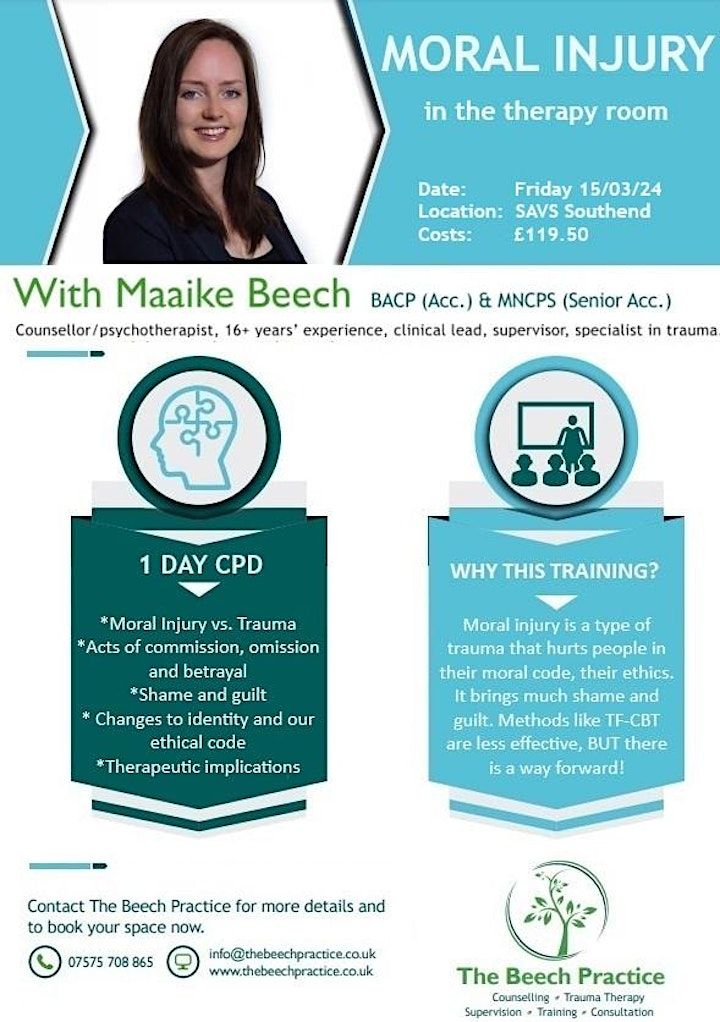
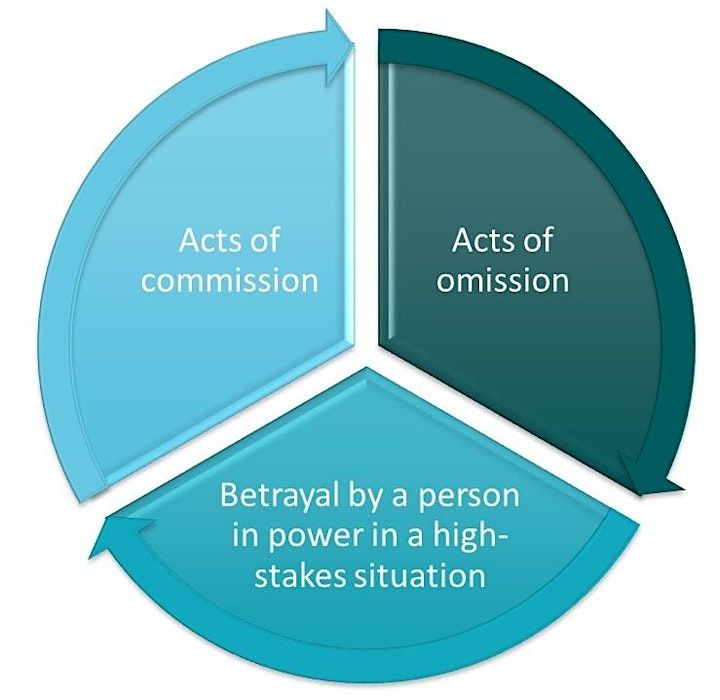
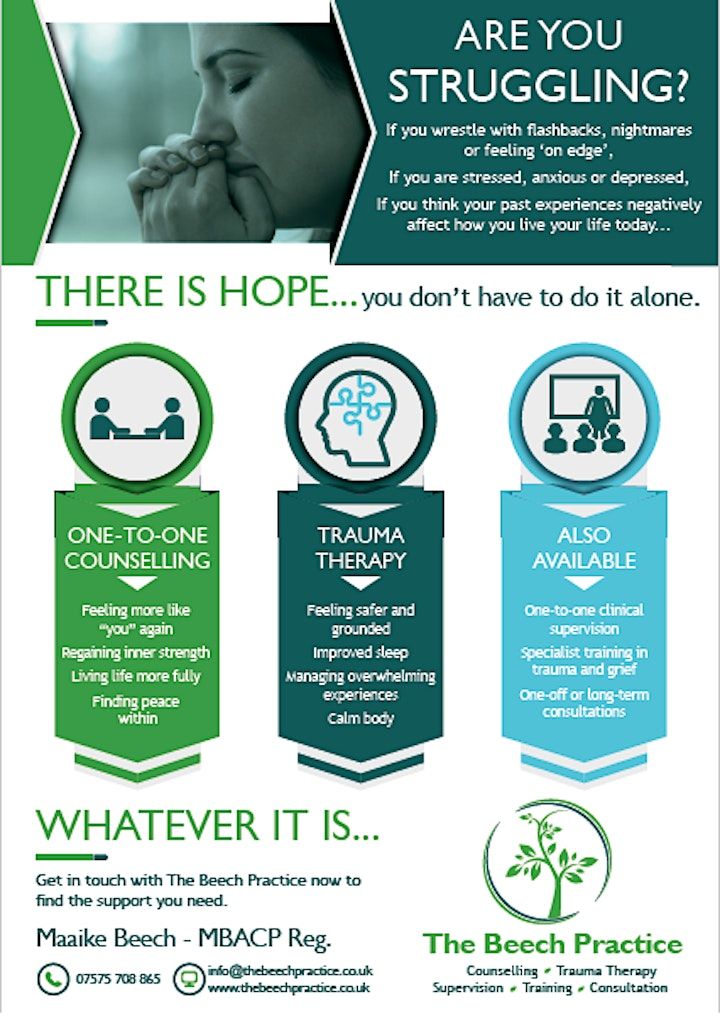
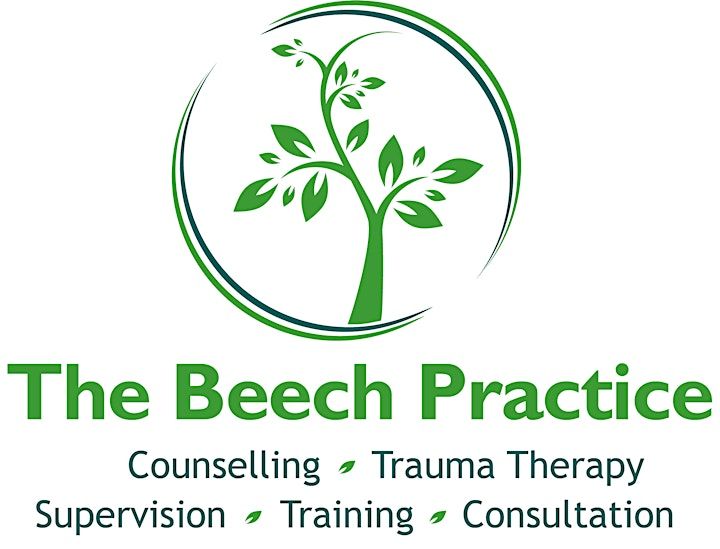
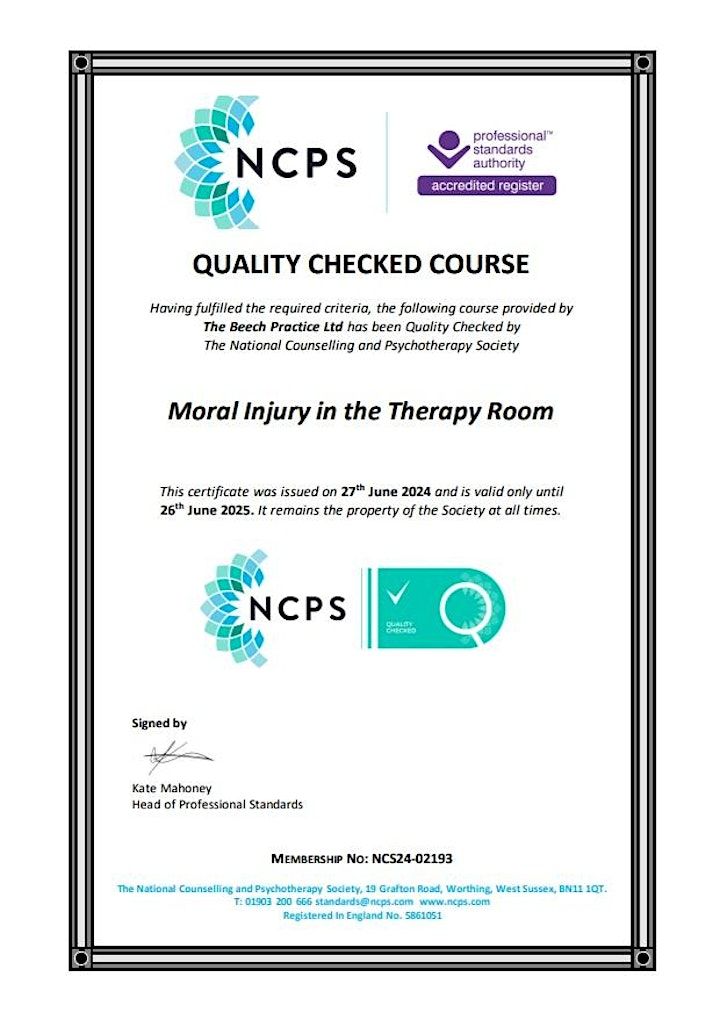
Event Venue
Online
GBP 135.00











